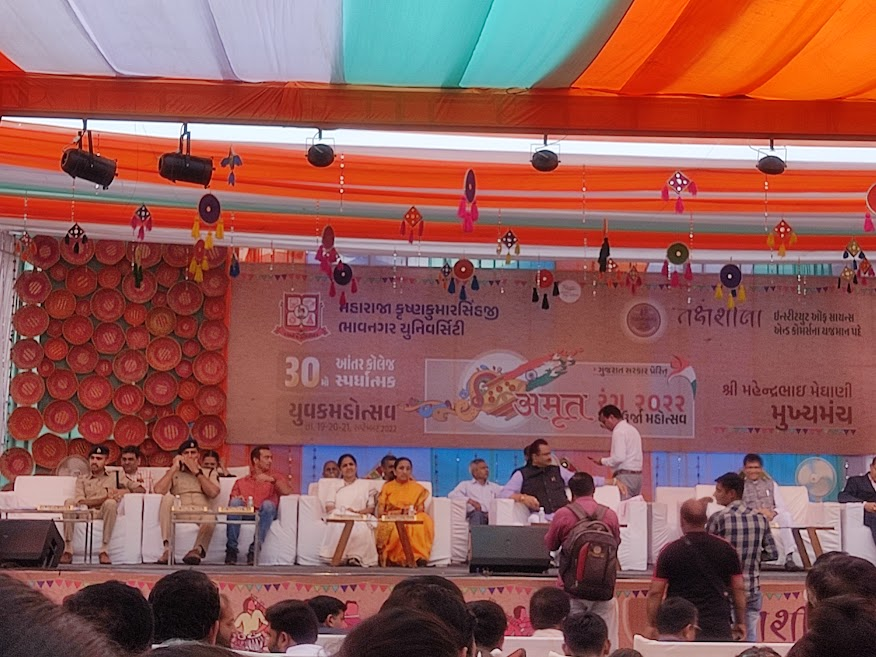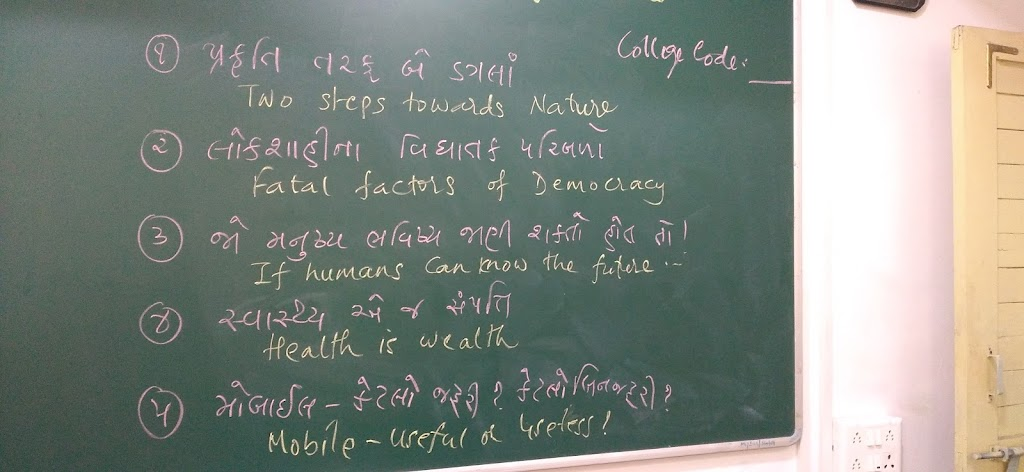History of Puritan and Restoration Age
Hello Readers, I am writing down answers to some questions in this blog. Which is given by Dr. Dilip Barad sir, Department of English Maharaja Krishnakumarsinhji Bhavnagar University.
Write a blog on any one or more writers of these ages.
Puritan and Restoration Ages
Puritan age existed from 1620 to 1660. The age was ruled by King Charles I and King James 1, and there were certain disruptions in that period which led to the establishment of the Restoration period in the year 1660. On the arrival of King Charles II, the monarchy in England was restored back. There were a number of changes in the political and social front during the Restoration period.
Puritan Age-
The 17th century is regarded as the age of Puritanism. Due to the literary works of John Milton during this period, the age is also referred to as the Age of Milton. Milton was one of the prominent poets of this period.
Here I am writing down about John Milton. Who is the Main Writer of this age.
John Milton-
In an age that, by comparison with the Elizabethan, produced relatively few great writers Milton stands as the one man who may claim a place among the very greatest. His prose is among the finest controversial writing in the language, and his poetic achievement has generally been considered to be second only to that of Shakespeare.
His Life-
Milton was born in Bread Street, Cheapside, London. His father was a money-scrivener, an occupation that combined the duties of the modern banker and lawyer. Milton was educated at St Paul's School, London, and at Cambridge. At the university, his stubborn and irascible nature declared itself, and owing to insubordination he was ' sent down ' for a term. On taking his final degree (1632), he abandoned his intention of entering the Church and retired to Horton, a small village in Buckinghamshire, some seventeen miles from London, whither his father had withdrawn from the business. Milton's next few years were those of a sequestered man of letters. Poetry, mathematics, and music were his main studies. In 1638, he left for a tour of the Continent, staying some months in Italy, where he met many scholars and literary men.
His Prose-
Most of Milton's prose was written during the middle period of his life (1640-60) when he was busy with public affairs. The prose works have an unusual interest because as a rule, they have a direct bearing on either his personal business or public interests. In all, they amount to twenty-five pamphlets, of which twenty-one are in English and the remaining four in Latin. He began pamphleteering quite early (1641) when he engaged in a lively controversy with Bishop Hall over episcopacy. Then, while teaching, he wrote a rather poor tract, Of Education (1644). When his wife deserted him, he composed two pamphlets on divorce (1643 and 1644), which scandalized the public with the freedom of their opinions and the slashing nature of their style. The critics of the pamphlets sought to confound Milton on a technical matter by pointing out that he had not licensed the books, as required by law. To this Milton retorted with the greatest of all his tracts, Areopagitica (1644), a noble and impassioned plea for the liberty of the Press. Later works include a defense (in Latin) of the execution of Charles I and of other actions of the Commonwealth Government. During the last years of his life, Milton partly completed a History of Britain and other scholastic works. When we consider the style of Milton's prose, we must keep in mind how it was occasioned. His pamphlets were cast off at white heat and precipitated into print while some topic was in urgent debate either in Milton's or the public mind. Hence, in method, they are tempestuous and disordered; voluble, violent, and lax in style.
His Poetry-
- “Song on May Morning” (1632–33)
- “Il Penseroso” (1633)
- “L’Allegro” (1633)
- “On His Being Arrived to the Age of Twenty-Three” (1631)
- “To Cyriack Skinner” (1656)
- “On Shakespeare” (1630)
- Paradise Lost (1667)
- “On his Deceased Wife” (1658)
- Samson Agonistes (1671)
- “On His Blindness” (1655)
Restoration Age-
Three historical events deeply influenced the literary movements of the time: the Restoration of the year 1660; the Roman Catholic controversy that raged during the latter half of Charles II's reign; and the Revolution of the year 1688. The Restoration of Charles II brought about a revolution in our literature. With the collapse of the Puritan Government, there sprang up activities that had been so long suppressed that they flew to violent excesses. The period is also known as the Age of Dryden, who was a prominent writer of this period.
John Dryden-(1631-1700)
His Life-
Dryden was born near Oundle in Northamptonshire and may have begun his education at Oundle Grammar School. He later entered Westminster School and went on to Cambridge. In 1657 or 1658, he moved to London, where he remained for the rest of his life as a man of letters. His life was a long one. It was, in addition, an exceedingly fruitful one. For forty years, he continued to produce an abundance of literary works of every kind - poems, plays, and prose works. The quality of it was almost unfailingly good, and at the end of the prime of his manhood. life, his poetry was as fresh and vivacious as it had been in the Of Dryden, it can be said without qualification that he is representative of his age. Indeed, it has been urged as a fault against his character that he adapted himself with too facile a conscience to the changing fortunes of the times. His earliest work of any importance is pre - Restoration (1659), and consists of a laudation of the recently dead Oliver Cromwell. At the Restoration, he changed his views, attaching himself to the fortunes of Charles II and to the Church of England. This loyalty brought its rewards in honors and pensions so that for many years Dryden was easily the most considerable literary figure in the land. Yet his career was not without its thorns, for smaller men were busy with their slanders. On the accession of James Il in 1685, Dryden changed his faith and political persuasion, becoming a Roman Catholic.
His Poetry -
Dryden began his life's work with poetry he concluded it with poetry, and the years between are starred with the brightness of his greater poems. As early as February 1664, Pepys records in his diary that he met "Mr. Dryden, the poet"; and he remained "Mr. Dryden, the poet" till the day of his death. It is therefore as a poet that Dryden is chiefly to be judged. His first published poem of any consequence was a series of heroic stanzas on the death of the Protector Oliver Cromwell (1659). It consists of thirty-seven quatrains of no particular merit. They move stiffly and are quite uninspired by any political or personal enthusiasm, but they are a striking manifestation of Dryden's directness and show a certain angular force and some metrical dexterity.
- Mac Flecknoe (1682)
- The Medall (1682)
- Annus Mirabilis (1667)
- Marriage à la Mode (1673)
- All for Love (1678)
- Heroic Stanzas (1659)
Dryden could write sophisticated quatrains his own way:
We sigh’d to hear the fair Iberian Bride
Must grow a Lilie to the Lilies side,
While Our cross Stars deny’d us Charles his Bed
Whom Our first Flames and Virgin Love did wed.
For his long absence Church and State did groan;
Madness the Pulpit, Faction seiz’d the Throne:
Experienc’d Age in deep despair was lost
To see the Rebel thrive, the Loyal crost.
Dryden ended his life in squabbles with his publisher and in bitterness over his own fate and that of not only his king but the principle of succession he had fought so hard to defend. He concluded his career with a contribution to a revision of John Fletcher’s Pilgrim. His prologue continues his attack, begun in “To my Honour’d Kinsman, John Driden” on the latest of his detractors, Sir Richard Blackmore and Luke Milbourne, poetaster and quack doctor, and the epilogue continues his ongoing attack against self-righteous Puritans who attack the stage and the age in general. But his best contribution is a fitting epitaph, both for himself and his century. Dryden portrays Momus, the god of mockery, showing up at a celebration of the century. Momus’s comments are devastating, as he attacks the god or goddess associated with each third of the century. To Diana, patroness of the early Stuarts, Momus comments, “Thy Chase had a Beast in View”; to Mars, patron of the Interregnum, “Thy Wars brought nothing about”; to Venus, patroness of the later Stuarts, “Thy Lovers were all untrue.” This last is perhaps his most devastating statement, for it refers not only to the licentious loves of Charles’s time but to James’s subjects’ infidelity. No wonder the expiring poet would with his last breath sing, “‘Tis well an Old Age is out, / And time to begin a New.” Dryden meant not only the century itself but his own old age. He could only hope that he was on his way to a new life, one free from the strife and disappointment of this life, one appreciative of the celestial strains of his great poetry.
[Word Count-1562]





.jpg)





























































